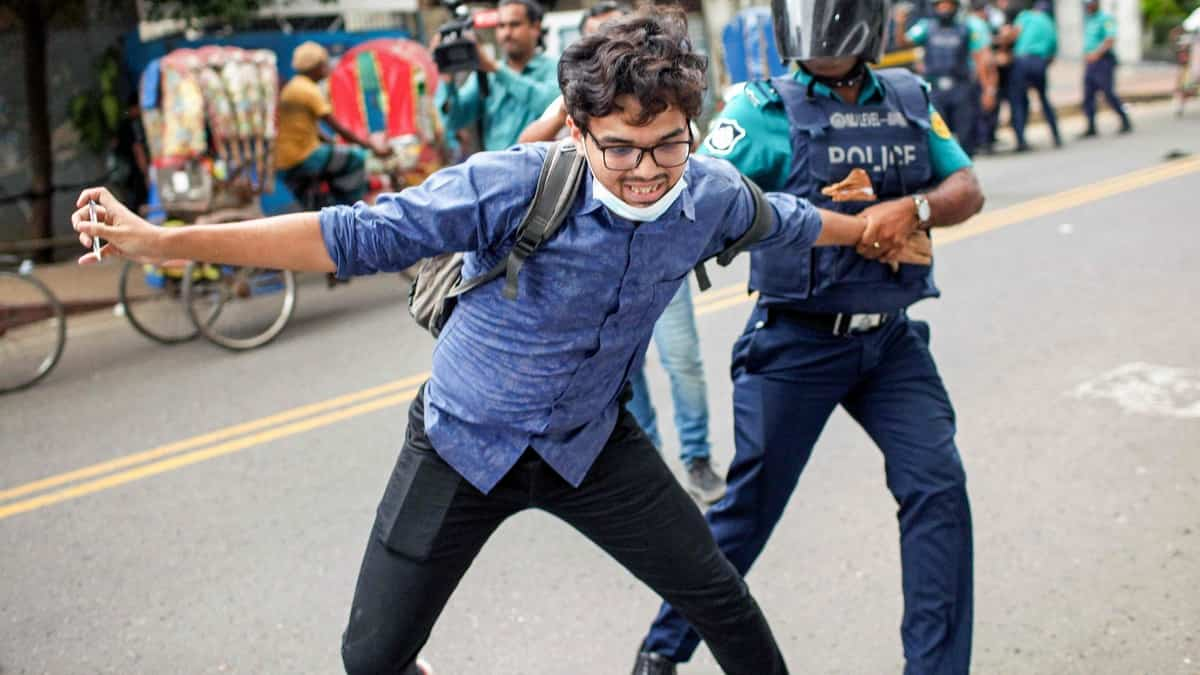
Bangladeshi students protested again on Monday after Prime Minister Sheikh Hasina's government ignored an ultimatum to release their leaders and apologise for those killed in recent unrest.
• Read also: Bangladesh: Students threaten to resume protests, internet restored
• Read also: Protests in Bangladesh: More than 2,500 arrested
Several marches were held on Monday in the capital Dhaka and elsewhere in Bangladesh but on a smaller scale than those earlier in the month.
Police used batons to break up a protest on the outskirts of the city, arresting at least 20 people, the largest daily, Prothom Alo, reported.
Security forces were deployed in large numbers in Dhaka, a major city of 20 million people, to prevent further gatherings.
Student protests against a quota system in the civil service have killed at least 205 people, including several police officers, according to an AFP tally based on police and hospital data.
The clashes were among the worst in Hasina's 15 years in office, with her government seeking to restore order, including deploying the army, cutting off internet access and imposing a curfew.
Thousands of arrests
Police arrested at least six leaders of the Students Against Discrimination Movement, the group that organized the initial protests.
“The government continues to show complete insensitivity towards our movement,” Abdul Qader, one of the movement’s coordinators, said in a press statement on Monday.
“We are calling for protests across the country and requesting all Bangladeshis to show solidarity with our demands and join our movement,” he added.
Students Against Discrimination has vowed to end a week-long moratorium on protests if police do not release their leaders by Sunday evening, July 28.
The group is demanding a public apology from Ms Hasina for the “student massacre,” the dismissal of several ministers, and the reopening of schools and universities that were closed at the height of the crisis.
At least 9,000 people have been arrested across Bangladesh since the unrest began, according to Prothom Alo.
The army is still patrolling urban areas and a nationwide curfew remains in place but has been gradually eased since early last week.
Mobile internet service was restored on Sunday, after an 11-day nationwide outage at the height of the unrest.
“Back to normal”
The Ministry of Foreign Affairs confirmed in a press statement today, Sunday, that “the situation is returning to normal thanks to the appropriate measures taken by the government and the population.”
The government also declared a national day of mourning on Tuesday for those killed in the clashes.
The protest began after the reintroduction in June of a system that reserves more than half of civil service jobs for certain candidates, including nearly a third for descendants of veterans of Bangladesh's independence war.
With about 18 million young Bangladeshis unemployed, according to government figures, the decision has come as a shock to graduates.
Critics of the quotas say they are aimed at reserving positions in the civil service for those close to the Awami League, the prime minister's party.
The Supreme Court reduced the number of these reserved jobs a little over a week ago, but has not responded to protesters' demands to abolish the hiring system entirely.
Sheikh Hasina, 76, has ruled Bangladesh continuously since 2009 and won her fourth consecutive election in January after a vote without real competition.
Human rights groups accuse his government of using state institutions to consolidate its grip on power and eliminate dissent, including carrying out extrajudicial killings of opposition activists.
The authorities accused opposition parties of hijacking the protests to stir up unrest.
Interior Minister Asaduzzaman Khan told reporters on Sunday that security forces had acted with restraint but had “had to open fire” to defend government buildings.






